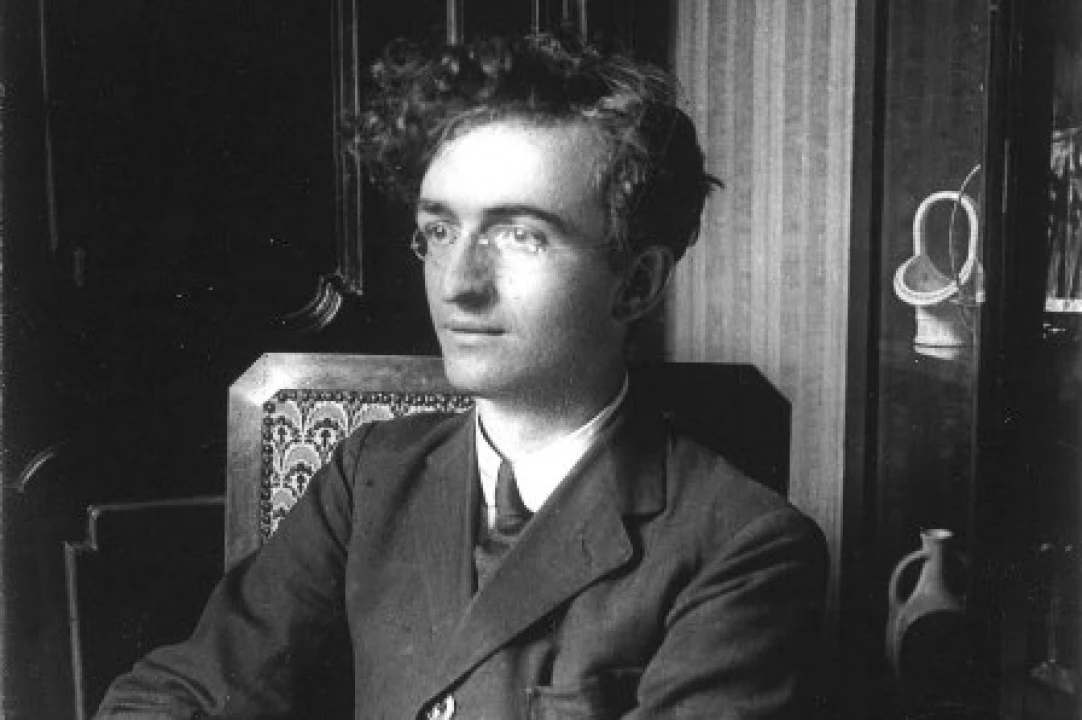WTI Magazine #59 2015 May, 1
Author : Giovanni Verde Translation by: John Cabot University
For the 70th anniversary of the Italian Liberation from the Nazi-Fascist occupation, it is important to celebrate and remember the stories and testimonies of all those Italian people who made the National history, and represented the symbol of the resistance fight and movement against the regime. One of them was the young journalist Piero Gobetti, described by Carlo Levi as "tall and thin" with a "modest diligent attitude", who is still the symbol of the freedom and power of speech against every type of authoritarian political power.
Piero Gobetti was born in Turin on June 19th, 1901. Since his very youth, Gobetti decided to anticipate his diploma exam in high school, in order to fight the last months in the First World War, in Summer 1918, motivated by patriotic ideals and the trend of democratic interventionism.
At the end of the war, Piero enrolled in the the Law School at University of Turin, in which he had among his teachers the economist Luigi Einaudi, who later became the second President of the Italian Republic. Deeply inspired by the idea of liberalism and laissez-faire, Gobetti established, on November 1918, the magazine Energie Nove, in which the journalist harshly criticized the Italian ruling class.
In 1922, Gobetti decided to found a new periodical called La Rivoluzione Liberale (The Liberal Revolution), in collaboration with Giustino Fortunato, Antonio Gramsci and Luigi Sturzo, and the first number was published on February 2nd, 1922. Gobetti's aim with this new periodical, on the same trend of Energie Nove, was to create a new political class aware of "social needs caused by the participation and presence of the working class in the life of the State".
Meanwhile, Fascism took the power in Italy, becoming the ruling political party, and started establishing a dictatorship. Gobetti lined up against the regime; as a matter of fact, on November 23rd , he wrote the harshest L'elogio della ghigliottina (the eulogy of guillotine) with the following words: we hope that " tyrants would be tyrants that the reaction would be reaction, and that there would be someone who have the courage to raise the guillotine, and that everyone maintains the position all the way [...] We ask whips to wake up someone, we ask the executioner to figure it out" and "we are like the tough skin of a nut: we will protect our ideas by the abuse of power with all of our strengths until it will be possible".
As editor, Gobetti brought to Italy some of translated books of authors who beacame icons of the Liberal thought, such as John Stuart Mill. The Liberal ideas of Piero Gobetti are clearly exposed in his masterpiece La rivoluzione liberale. Saggio sulla lotta politica in Italia, published in April, 1925. The work is divided into four parts: : L'eredità del Risorgimento (the heritage of Risorgimento), La lotta politica in Italia (the political fight in Italy), La critica liberale (the liberal criticism), Il fascismo (Fascism). In La critica liberale, Gobetti resumes his proposal of making politics without forgetting the importance of society, and underling how the secularity of a State has to be considered the basis for the creation of a new élite.
Gobetti clarifies that Fascism instead is the "autobiography of the nation and only represents the festering of traditional damages of the Italian society".
In May 1924, Gobetti went to Paris and Palermo, visiting some friends met during his honey moon. In the meantime, Mussolini ordered to the Prefect of Turin to punish Gobetti for his statements against the Fascist regime. On June 9th, 1924 Gobetti established a new magazine Il Baretti in which he collaborated with Benedetto Croce and Eugenio Montale (Gobetti published Monatle's Ossi di Seppia by the publishing house "Piero Gobetti editore"). On March, 1925, the periodical was confiscated by the Fascist regime. Inthose days, Gaetano Salvemini was arrested, as well. By the end of the year, Gobetti decided to leave Italy and move to Paris continuing his work of publishing. However, his heart diseases deteriorated because of an unstable health and illness that took him to a premature death on February 15th, 1926 in Neuilly-sur-Seine, at the age of 24.
The story of Piero Gobetti is one of the many testimonies of those contemporary Italian young men who resisted and did not fear the regime.
After 70 years from the Liberation of Italy from the horrors of Nazi-fascists, the memory recalls the allied troops, the American young men who sacrificed their lives for a new-brand Italy, and all the protagonists of the resistance from every political part.
Piero Gobetti is still the symbol of how young men, enlightened by ideals of freedom, democracy and solidarity, were fundamental for the release and reconstruction of the entire country.



